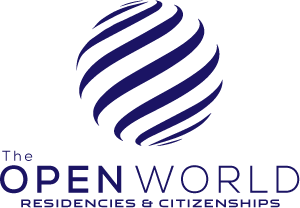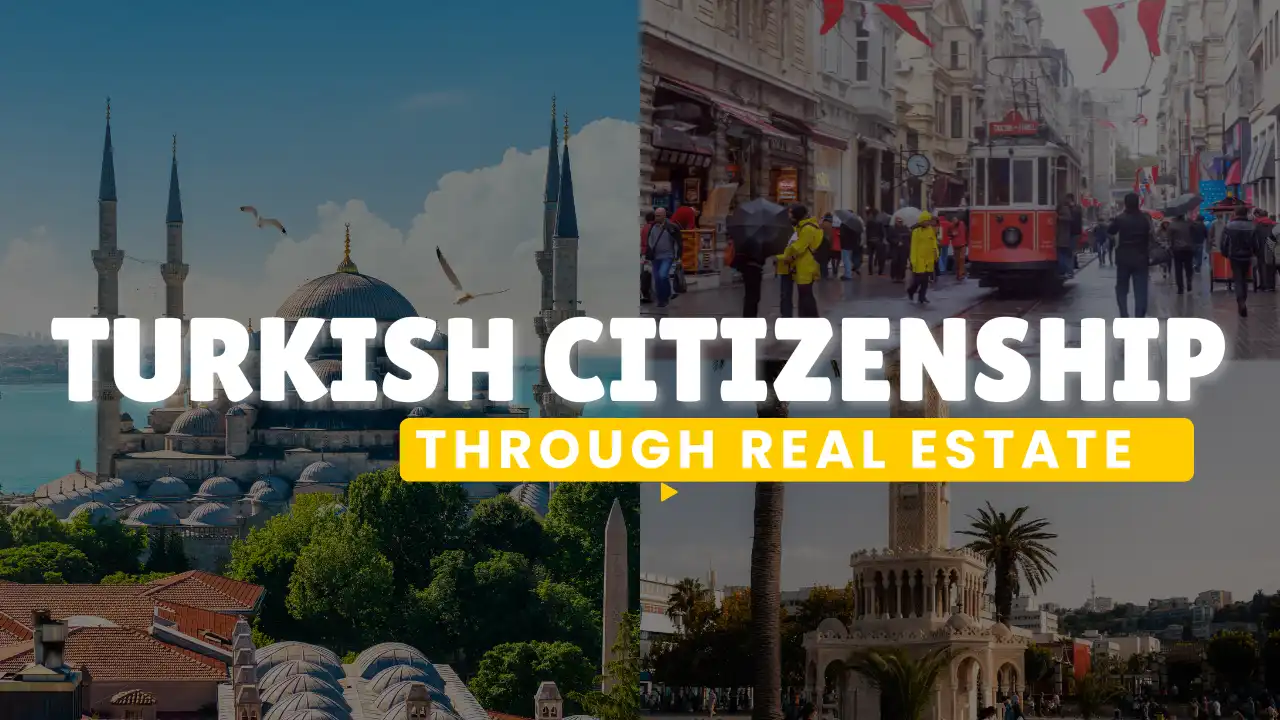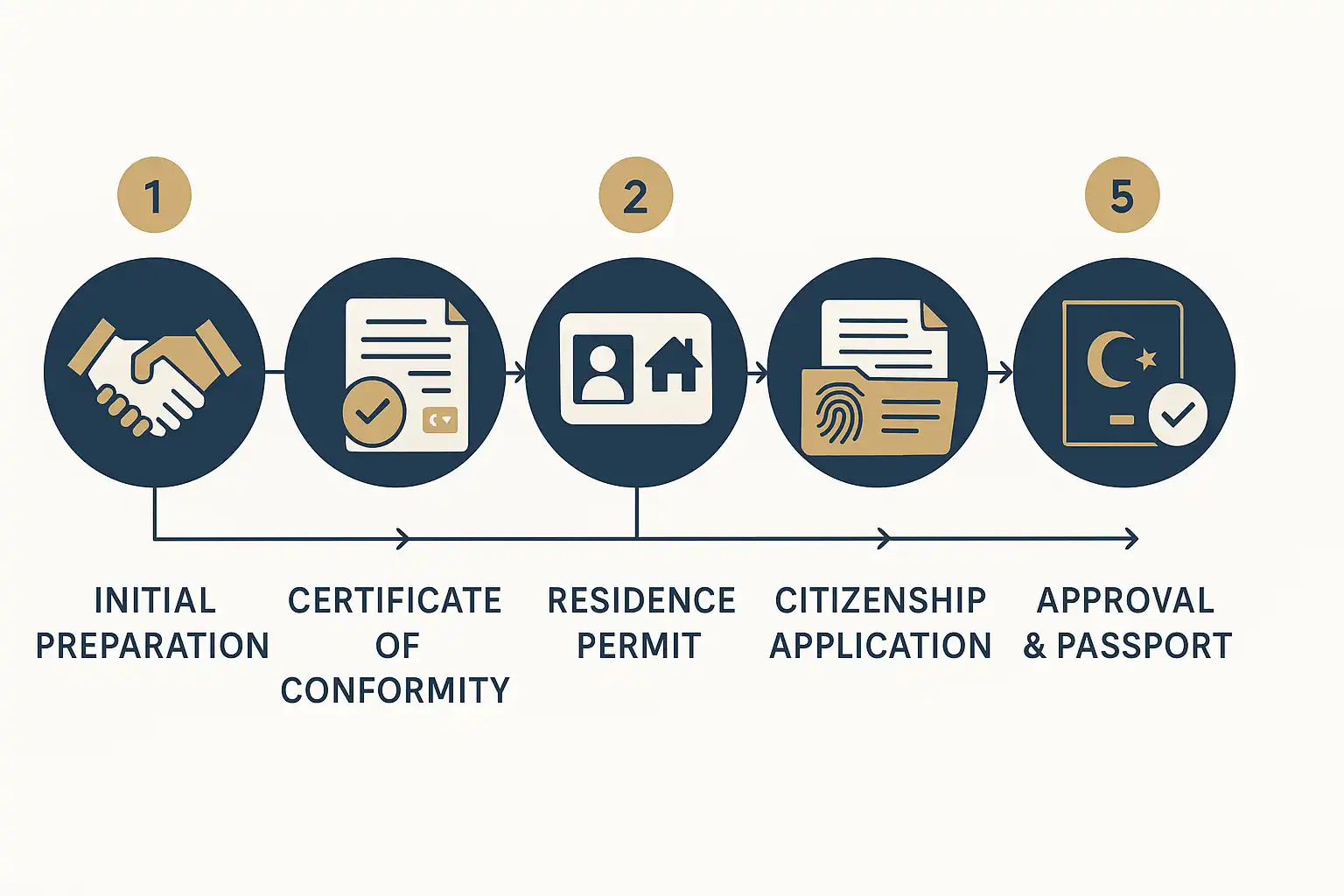Imagine owning property in a beautiful, culturally rich country—and gaining a second passport while you’re at it. Turkey’s Citizenship by Investment program opens the door not just to scenic real estate, but to global mobility and new financial opportunities. Whether you’re an investor or a family looking for security, this path is worth a closer look.
How to Obtain Turkish Citizenship Through Real Estate Investment
To qualify for Turkish citizenship through real estate, investors must purchase property worth at least $400,000 USD. The asset must be held for a minimum of three years and officially registered through Turkey’s land registry system. Once complete, the application process typically takes 3 to 6 months.
Overview of Turkish Citizenship by Investment
What Is the Turkish Citizenship by Investment Program?
The Turkish Citizenship by Investment (TCBI) program enables foreign nationals to acquire citizenship by making a qualifying financial contribution. The most popular pathway is through purchasing real estate, with other options including fixed capital investments and bank deposits. Introduced to stimulate economic growth, the program has attracted investors seeking strategic advantages like global mobility and access to emerging markets.
Why Real Estate Is the Preferred Route
Real estate remains the most popular option due to its tangibility and potential for asset appreciation. Investors can choose from residential units, commercial spaces, or land, provided the property is officially registered and free of legal encumbrances. Once the purchase is completed, the asset must be held for a fixed period without resale or transfer, ensuring the investment remains stable.
Legal Basis and Government Oversight
The program is regulated by Turkish authorities through a transparent legal framework. The Ministry of Environment and Urbanization oversees the property aspect, while the Ministry of Interior handles citizenship processing. A Certificate of Conformity is issued to confirm the eligibility of the investment before a citizenship application is submitted.
Why I Choose Turkey
When I traveled to Istanbul on a business visit, I was immediately drawn to the real estate market. The blend of modern infrastructure, culture, and opportunity was unlike anything I had seen. I ended up investing in a modest apartment in a developing neighborhood. That decision led to acquiring Turkish citizenship, something I hadn’t planned, but now value deeply. The process was smooth, the property remains a valuable asset, and it opened doors I didn’t know existed.
Why Investors Are Choosing Turkey
Strategic Location and Global Connectivity
Turkey sits at the crossroads of Europe, Asia, and the Middle East, making it a prime hub for international travel and commerce. Investors see it not just as a destination, but as a launchpad. With access to two continents, Turkey offers global mobility and easier business expansion, especially for those seeking a second base outside their home country.
Competitive Property Market
Compared to other citizenship-by-investment destinations, Turkey offers more value per square meter. The diversity of its property market, from coastal retreats to urban apartments—gives investors flexibility based on their personal or financial goals. The ability to own freehold property and generate rental income further strengthens its appeal.
Citizenship and Lifestyle Benefits
A Turkish passport provides visa-free or visa-on-arrival access to over 110 countries, making it a strong travel document for global citizens. Investors also gain the right to live, work, and study in Turkey without limitations. The country’s healthcare, education, and infrastructure are modern and accessible, providing not just a legal benefit but a practical lifestyle upgrade.
Political and Economic Stability
While Turkey has faced challenges, its economic trajectory and real estate sector have remained resilient. The government’s continued support for foreign investors through stable regulations and streamlined processes signals a long-term commitment to the program. Many investors value this mix of opportunity and governance.
A Growing Trend Among Global Citizens
Whether seeking asset diversification, family relocation, or an alternative passport, more people are turning to Turkey. It’s not just about real estate—it’s about access, mobility, and future-proofing one’s citizenship options. Investors increasingly view Turkish citizenship as a strategic tool in a changing world.
Minimum Investment Requirements and Property Types
Core Eligibility Criteria
To qualify for Turkish citizenship through real estate, an investor must purchase property that meets the government’s legal threshold. The property must be acquired outright, fully paid for, and officially registered with the Turkish Land Registry. It cannot be under mortgage or have any financial liens. Additionally, the investor must commit to retaining the property for a set holding period, during which it cannot be sold or transferred.
Property Valuation and Appraisal
A licensed, independent valuation report is mandatory to confirm the market value of the property. This ensures compliance with the government’s criteria and helps prevent inflated pricing, which was a concern in earlier phases of the program. The report must be prepared in line with the Capital Markets Board of Turkey standards and is reviewed as part of the citizenship application.
Eligible Property Types
Investors have a wide range of property options. These include new residential units, commercial properties, retail spaces, and even plots of land. Properties can be purchased in any region of Turkey, from coastal cities like Antalya and Bodrum to urban centers like Istanbul or Ankara. However, certain neighborhoods may be restricted based on population density or national interest.
Multiple Properties Under One Investment
It’s possible to combine multiple units into a single application, as long as the combined value meets the official threshold and all purchases are completed within a specific timeframe. This gives investors flexibility to build a small portfolio, acquire rental-generating assets, or spread risk across different property types and locations.
Joint Ownership and Spousal Considerations
In cases where property is purchased under joint ownership, only the individual listed as the primary applicant may qualify for citizenship, unless the entire investment is in their name. Spouses and dependent children, however, are eligible to be included in the same application as long as documentation proves the family relationship.
Step-by-Step Process to Obtain Turkish Citizenship
Initial Preparation
Before making a purchase, investors must ensure they meet the legal and financial requirements. Engaging a licensed immigration lawyer and a reputable real estate agent is strongly advised to navigate Turkish regulations effectively.
- Hire a licensed attorney experienced in Turkish property law
- Choose a government-approved real estate consultant
- Confirm property eligibility before signing any agreement
Secure a Tax Number and Open a Bank Account
To carry out financial transactions in Turkey, you must first obtain a Turkish Tax Identification Number.
- Visit a local tax office with your passport to apply
- Open a Turkish bank account to facilitate the property payment
Property Selection and Legal Verification
Once you identify a property, it must undergo legal and valuation checks.
- Obtain a property appraisal report from an approved valuation firm
- Verify the title deed is free of debt or legal disputes
- Sign a sales contract and make full payment via bank transfer
Title Deed Transfer and Investment Registration
Ownership of the property is finalized when the title deed is transferred at the Land Registry Office.
- Submit the title deed for registration with the Tapu office
- Apply for a Certificate of Conformity to confirm investment eligibility
Residence Permit Application
Even though you’re applying for citizenship, a short-term residence permit is still required.
- Apply at the Provincial Directorate of Migration Management
- Provide proof of address, health insurance, and identity
Citizenship Application Submission
With all documentation in place, your legal team will submit your citizenship application to the Ministry of Interior.
- Submit the application through the Directorate General of Population and Citizenship Affairs
- Include proof of investment, residence permit, biometrics, and family documentation
- Await final approval and issuance of Turkish passports for you and eligible dependents
Holding Period and Restrictions
The Three-Year Holding Requirement
One of the core conditions of the Turkish Citizenship by Investment program is the mandatory holding period. Once an investor acquires eligible property, they must retain ownership for a minimum of three years. This condition is non-negotiable and is strictly monitored by the Ministry of Environment and Urbanization. If the property is sold before the period ends, the citizenship status can be revoked. This rule ensures the investment contributes to long-term economic stability rather than short-term speculation.
No Resale, Transfer, or Mortgage During the Holding Period
During this mandatory holding window, the property cannot be sold, transferred, or used as collateral for a loan. The land registry office places a legal annotation on the title deed that restricts the asset from any form of disposal. This annotation stays in place until the three-year period is complete. It’s important for investors to understand that even leasing or gifting the property to a relative does not exempt them from this clause.
Rental Income and Property Use
While resale is prohibited during the holding period, investors are allowed to lease the property for rental income. This makes residential apartments and commercial spaces particularly attractive, as they can generate returns while still fulfilling citizenship requirements. However, property owners are responsible for declaring rental income and complying with local tax laws. Proper documentation and legal representation help ensure full compliance without jeopardizing the citizenship application.
Neighborhood and Property Restrictions
Not all properties in Turkey are eligible for citizenship purposes. Some neighborhoods—especially those with a high concentration of foreign ownership—may be restricted. The Turkish government enforces these limitations to prevent demographic imbalance and to protect local housing access. Additionally, properties under construction may be eligible only if accompanied by proper title documentation and valuation reports. Investors must ensure all paperwork is in order before proceeding.
Legal Fees, Taxes, and Total Costs
Understanding the Full Financial Picture
When applying for Turkish citizenship through real estate, the purchase price is only part of the overall expense. Investors should anticipate several additional costs tied to legal procedures, government requirements, and transactional logistics. These costs vary based on property type, location, and legal representation, but are essential to budget for.
Legal and Advisory Services
Engaging a qualified attorney is not just a recommendation—it’s a necessity. Your lawyer handles everything from due diligence and title verification to preparing and submitting your citizenship file. Legal fees typically cover contract drafting, application support, and representation throughout the process. Some firms offer bundled services that include real estate sourcing and immigration assistance.
Government Fees and Taxes
Several official charges apply during the transaction. These include taxes related to the transfer of ownership, mandatory contributions for document processing, and registration costs. While relatively modest compared to the property value, they must be paid promptly to avoid delays in application processing.
Property-Related Charges
In addition to legal and government costs, there are one-time property-related expenses such as land registration fees, appraisal fees, and notary charges. Some of these are split between the buyer and seller, while others fall solely on the investor.
Cost Breakdown Overview
| Cost Category | Description |
| Legal Services | Covers contract review, citizenship filing, and application support |
| Property Transfer Tax | Paid to register property with the Turkish Land Registry |
| Appraisal and Survey Fees | Required valuation by licensed firms |
| Notary and Translation | Legalization of documents and certified translations |
| Residency Application | Temporary residence permit fees before citizenship approval |
Understanding these components ensures that investors are financially prepared beyond the minimum investment. Planning for them in advance helps prevent surprises and keeps the process on track.
Citizenship Timeline and Approval Duration
Initial Preparation and Property Acquisition
The journey toward Turkish citizenship begins with preparation: selecting a qualifying property, completing legal due diligence, and ensuring all documentation aligns with the program’s requirements. While this stage depends largely on how quickly the investor makes a decision, it is critical to approach it carefully. Having a skilled lawyer and a reliable real estate advisor can significantly reduce delays during this phase.
Application for Certificate of Conformity
Once the property purchase is finalized and the title deed is transferred, the investor must apply for a Certificate of Conformity. This document is issued by the Ministry of Environment and Urbanization, confirming that the property meets the citizenship program’s standards. The certificate acts as the official green light, enabling the next stages of the application.
Residence Permit Processing
Before applying for citizenship, the main applicant must obtain a residence permit, even if they do not intend to live in Turkey. This short-term residency is a formality but remains a mandatory step. The residence permit is typically granted once the property transaction is verified and proof of address and health insurance are provided.
Submission of Citizenship Application
With the certificate and residence permit in hand, the full citizenship application can be submitted to the Directorate General of Population and Citizenship Affairs. The application includes the investor’s biometric data, family documents, and background checks. At this point, the process becomes largely administrative, with the legal team monitoring progress and responding to any inquiries from government departments.
Final Approval and Passport Issuance
Once the application is reviewed and approved, Turkish citizenship is granted by official decree. The investor and any eligible dependents can then apply for Turkish passports. No interviews or language tests are required. From submission to approval, the timeline may vary depending on the volume of applications, administrative checks, and document completeness, but the process follows a clearly defined legal pathway.
Additional Investment Options for Citizenship
Fixed Capital Investment
Apart from real estate, one of the approved alternatives is making a fixed capital investment into a Turkish business or industrial enterprise. This route is ideal for investors seeking to contribute directly to the country’s productive economy. The investment must be verified by the Ministry of Industry and Technology and must meet specific benchmarks to qualify.
Bank Deposit in Turkish Financial Institutions
Investors may also choose to deposit funds in a Turkish bank. The funds must remain in a local financial institution for a minimum period without withdrawal. This method is favored by those who prefer liquidity over property ownership, though it offers no rental income or capital growth.
Government Bonds
Another approved route involves purchasing government-issued bonds. These must be held for a fixed period and cannot be sold or transferred during that time. The bonds are issued by the Ministry of Treasury and Finance and represent a lower-risk, low-return option for conservative investors.
Real Estate Investment Funds
Some applicants opt to invest in real estate investment funds or venture capital funds approved by the Turkish Capital Markets Board. This option allows indirect participation in Turkey’s property market or startup ecosystem without holding individual physical assets.
Business Creation and Employment
Entrepreneurs can qualify by starting a company that creates employment for Turkish citizens. This path not only contributes to the economy but also reflects a long-term commitment to residency and business development in the country. The number of jobs created must meet the program’s threshold and be verified by the Ministry of Labor and Social Security.
Real estate investments meeting the required value, as well as fixed capital, bank deposits, government bonds, and investment fund investments, are all recognized routes under the TCBI program. Each of these alternatives must meet strict compliance and documentation standards. While real estate remains the most popular path, these additional options provide flexibility for investors with different goals and risk profiles.
Benefits of a Turkish Passport
Enhanced Global Mobility
A Turkish passport offers visa-free or visa-on-arrival access to over 110 countries, including destinations across Asia, South America, Africa, and parts of Europe. This level of mobility is particularly attractive to investors from regions with more limited travel access. While it does not currently include the Schengen Area, ongoing diplomatic efforts may expand this reach in the future.
Dual Citizenship Flexibility
Turkey allows dual citizenship, enabling investors to retain their original nationality while acquiring Turkish citizenship. This flexibility is especially valuable for individuals who want to enjoy the benefits of a second passport without giving up the legal, economic, or familial ties to their home country.
No Residency or Language Requirements
One of the program’s standout features is that it does not require physical residency in Turkey. There is no need to relocate, maintain a minimum stay, or demonstrate knowledge of the Turkish language. This makes it ideal for global citizens who wish to obtain a second citizenship without disrupting their current lifestyle or business commitments.
Access to a Modern Economy and Infrastructure
Citizenship grants full access to Turkey’s education, healthcare, and business systems. The country boasts a modern infrastructure, a young labor force, and a rapidly growing digital economy. Investors who eventually choose to reside in Turkey can benefit from its dynamic job market, high-quality healthcare services, and robust property rights.
Future Business and Visa Opportunities
Turkish citizens are eligible to apply for long-term visas such as the E-2 investor visa in the United States, subject to bilateral agreements. This opens up business opportunities abroad and expands the global footprint of those who seek to operate internationally. In a world where geopolitical dynamics are constantly shifting, a Turkish passport provides optionality and security.
Common Mistakes to Avoid During Application
Purchasing Ineligible Property
One of the most frequent errors investors make is buying property that does not meet the program’s legal criteria. Properties with unresolved title issues, shared ownership complications, or located in restricted zones are not eligible for citizenship. Before making any commitment, it’s essential to verify that the property qualifies and that a certified valuation report supports its market value.
Skipping the Independent Valuation
The valuation report is a cornerstone of the application process. Some investors rely solely on seller quotes, which can be inflated and lead to rejections. Only reports from licensed valuation firms approved by Turkey’s Capital Markets Board are accepted. Skipping or underestimating this step can derail an otherwise sound investment.
Not Using a Licensed Lawyer
Attempting to navigate the legal landscape without professional guidance can result in costly mistakes. A licensed lawyer ensures that property transfers, documentation, and application submissions meet Turkish legal standards. Unlicensed intermediaries may offer lower fees but can jeopardize the entire process through incomplete or incorrect filings.
Overlooking Required Documentation
Missing or incorrect paperwork is a common reason for delays or rejections. All documents must be translated into Turkish, notarized, and in some cases, apostilled. This includes proof of family relationships for dependents, passport copies, and financial records. Incomplete documentation will stall both the property registration and the citizenship application.
Using Non-Government-Approved Agents
Some investors fall into the trap of working with unauthorized agents who may promise expedited results or make unrealistic guarantees. Only licensed consultants and lawyers familiar with Turkish immigration law should be trusted. Verifying the credentials of your advisors helps safeguard both your investment and your legal status.
Avoiding these mistakes not only streamlines the process but also ensures that your application is fully compliant from day one. The key is preparation, professional support, and strict attention to regulatory detail.
Trusted Advisors and Legal Support
The Role of Legal Representation
Acquiring Turkish citizenship through real estate is a legally binding process with multiple regulatory checkpoints. A qualified attorney ensures that every step—from property selection to citizenship approval—is executed in accordance with Turkish law. Lawyers also serve as your legal proxy, enabling property transactions and government filings without requiring your physical presence in Turkey.
Choosing the Right Immigration Consultant
While lawyers handle the legal side, a trusted immigration consultant offers strategic guidance and coordinates between real estate agents, valuation firms, and government offices. A good consultant is familiar with the citizenship process from start to finish and can help manage timelines, gather documentation, and provide updates. It’s crucial to work with firms that have a proven track record and transparent pricing.
Verifying Credentials and Licenses
Due diligence doesn’t stop at the property. Investors must also verify the credentials of their legal and advisory team. Always check whether the law firm is registered with the Union of Turkish Bar Associations and whether your consultant is recognized by local immigration authorities. Avoid informal agents who promise guaranteed approval or bypass standard procedures.
Benefits of End-to-End Services
Many reputable advisory firms now offer full-service packages that include legal support, property scouting, translation, residency permits, and passport applications. This bundled approach simplifies the process and reduces the risk of errors or omissions. It also ensures that all services are aligned and coordinated under one roof.
Peace of Mind Through Professional Oversight
Given the financial and legal implications of obtaining a second citizenship, working with vetted professionals is not optional—it’s essential. The right support team transforms a complex process into a manageable, well-structured journey. With experienced advisors, investors gain more than legal compliance; they gain confidence that their future in Turkey is built on a secure foundation.
Take the Next Step with Expert Guidance
Ready to secure Turkish citizenship through real estate investment? At The Open World, we specialize in helping investors navigate the process with clarity, compliance, and confidence.
Whether you’re exploring your first international investment or expanding your global mobility strategy, our expert team is here to support you, step by step. Contact Us Now.
Final Thoughts
Obtaining Turkish citizenship through real estate investment is more than a transaction—it’s a strategic move that blends financial growth, lifestyle flexibility, and international access. With its robust legal framework, attractive property market, and streamlined citizenship process, Turkey has positioned itself as a compelling option for global investors.
Whether you’re seeking to diversify your portfolio, secure mobility for your family, or simply gain a second passport, this program delivers long-term value. The key lies in working with qualified professionals, making informed decisions, and ensuring every step aligns with the country’s legal and regulatory standards.
Turkey offers not just a passport, but a pathway to broader opportunities. For those ready to take a confident step toward global citizenship, real estate investment in Turkey stands as one of the most accessible and rewarding options available today.
Frequently Asked Questions (FAQs)
Can I buy multiple properties to meet the investment requirement?
Yes, multiple properties can be combined under a single application, as long as the combined value meets the minimum threshold and all purchases are completed within the required timeframe.
Do I have to live in Turkey to maintain my citizenship?
No, there is no residency requirement before or after obtaining Turkish citizenship. You are not required to live in Turkey at any point during the process.
Is it possible to include my family in the application?
Yes, the main applicant can include a spouse and dependent children under the age of 18 in the same citizenship application.
What happens if I sell the property before the holding period ends?
Selling the property before the mandatory holding period ends may lead to the revocation of your citizenship. The property must be held in full compliance with the rules.
Can I rent out the property during the holding period?
Yes, you are allowed to lease the property and generate rental income during the holding period, provided you declare the income and comply with tax laws.




